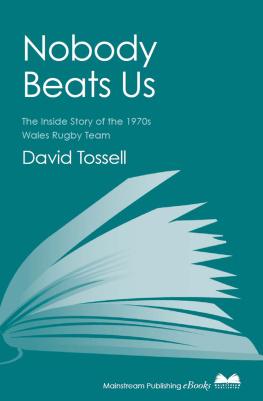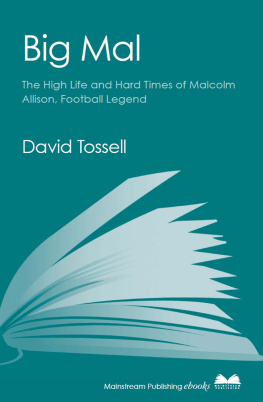Tossell David - All Crazee Now
Here you can read online Tossell David - All Crazee Now full text of the book (entire story) in english for free. Download pdf and epub, get meaning, cover and reviews about this ebook. year: 2021, publisher: Pitch Publishing (Brighton) Limited, genre: Detective and thriller. Description of the work, (preface) as well as reviews are available. Best literature library LitArk.com created for fans of good reading and offers a wide selection of genres:
Romance novel
Science fiction
Adventure
Detective
Science
History
Home and family
Prose
Art
Politics
Computer
Non-fiction
Religion
Business
Children
Humor
Choose a favorite category and find really read worthwhile books. Enjoy immersion in the world of imagination, feel the emotions of the characters or learn something new for yourself, make an fascinating discovery.
- Book:All Crazee Now
- Author:
- Publisher:Pitch Publishing (Brighton) Limited
- Genre:
- Year:2021
- Rating:4 / 5
- Favourites:Add to favourites
- Your mark:
- 80
- 1
- 2
- 3
- 4
- 5
All Crazee Now: summary, description and annotation
We offer to read an annotation, description, summary or preface (depends on what the author of the book "All Crazee Now" wrote himself). If you haven't found the necessary information about the book — write in the comments, we will try to find it.
All Crazee Now — read online for free the complete book (whole text) full work
Below is the text of the book, divided by pages. System saving the place of the last page read, allows you to conveniently read the book "All Crazee Now" online for free, without having to search again every time where you left off. Put a bookmark, and you can go to the page where you finished reading at any time.
Font size:
Interval:
Bookmark:


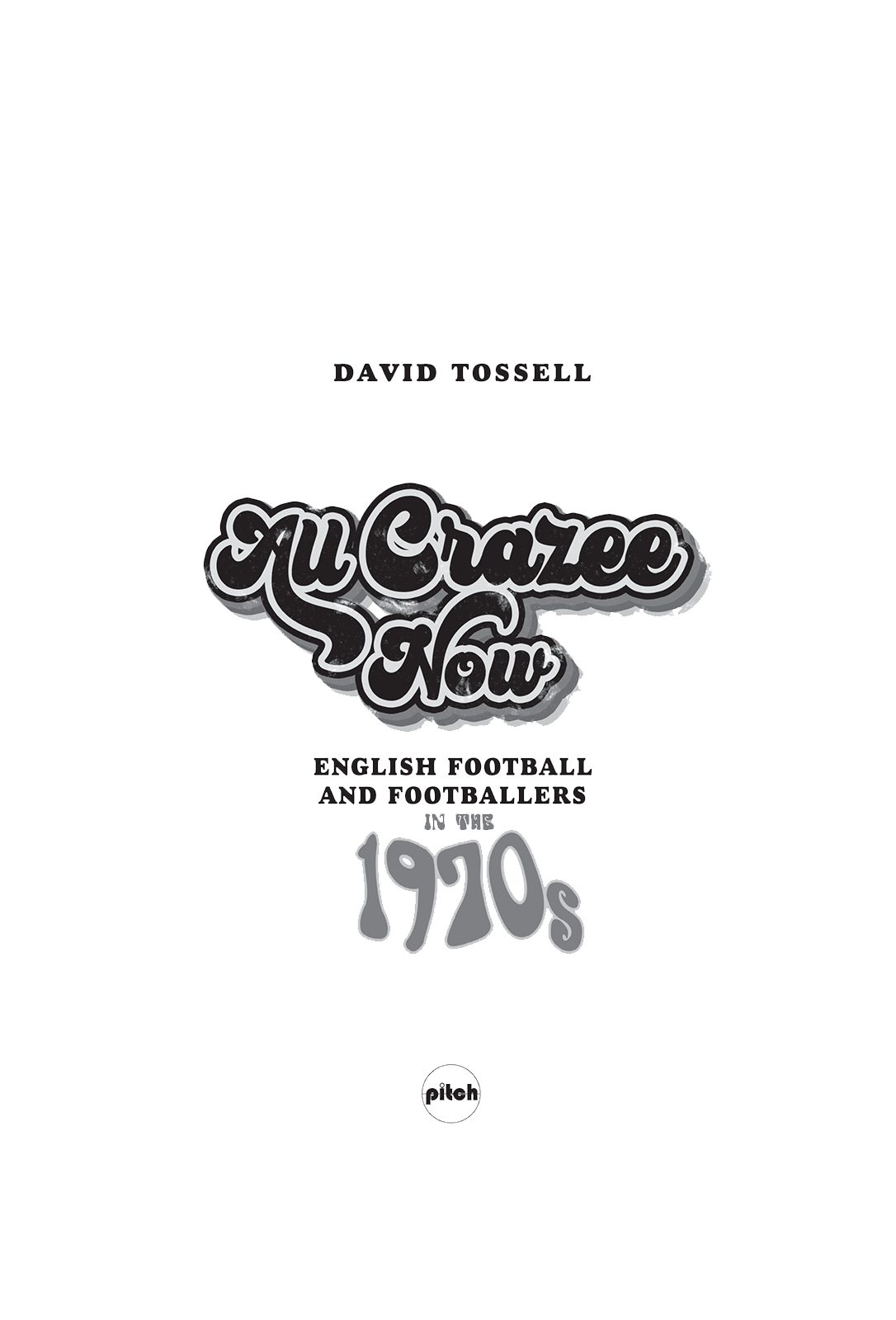
First published by Pitch Publishing, 2021
Pitch Publishing
A2 Yeoman Gate
Yeoman Way
Durrington
BN13 3QZ
www.pitchpublishing.co.uk
David Tossell, 2021
Every effort has been made to trace the copyright.
Any oversight will be rectified in future editions at the earliest opportunity by the publisher.
All rights reserved under International and Pan-American Copyright Conventions. By payment of the required fees, you have been granted the non-exclusive, non-transferable right to access and read the text of this e-book on-screen. No part of this text may be reproduced, transmitted, downloaded, decompiled, reverse-engineered, or stored in or introduced into any information storage and retrieval system, in any form or by any means, whether electronic or mechanical, now known or hereinafter invented, without the express written permission of the Publisher.
A CIP catalogue record is available for this book from the British Library
Print ISBN 9781785317576
eBook ISBN 9781785319013
--
eBook Conversion by www.eBookPartnership.com
And this is just what English football did not want to see. Surely, weve got to get away from this Bremner is off as well. They are both throwing their shirts down and, really, this is a side of English football, a face of English football, we do not want to see. What do the players think they are doing?... We are seeing the unacceptable face of English football.
BBC commentator Barry Davies, FA Charity Shield, 1974
Youre gonna get your fucking heads kicked in.
Leeds United and Liverpool fans underneath
Daviess commentary
THE SIXTIES, many in America believe, was bisected by the moment when, on 25 July 1965, Bob Dylan and his band took the stage at the Newport Folk Festival in Rhode Island and, instead of their usual acoustic performance, plugged electric guitars into amplifiers and blasted out Like a Rolling Stone to a chorus of boos from the audience. If English football in the Seventies had a similarly identifiable mid-point it was Saturday, 10 August 1974, the day when the FA Charity Shield announced its arrival at Wembley Stadium with an extraordinary contest between League champions Leeds United and FA Cup holders Liverpool.
Both teams travelled to north-west London facing life without their architects, Don Revie having accepted the England job after his second title triumph at Elland Road and Bill Shankly shocking a football community on Merseyside and beyond by announcing, only days before the match, that he was retiring from the job that appeared to define his very existence. The opposite directions in which the two clubs were about to head would shape the remainder of the decade; the mantle of team of the Seventies passing from one to the other.
The symbolic nature of the occasion was made even richer, we know now, by the identities of the two men newly entrusted with guiding the fortunes of the two protagonists. Allowed to lead his team out one final time, thanks to the generosity of his successor, Bob Paisley, Shankly had made the same walk three months earlier before a 3-0 victory over Newcastle United in one of the most one-sided of Wembley finals. Captured by the television cameras seemingly conducting the moves with his hands from his seat on the touchline, there had been no hint that, after three League titles, a European trophy, and now a second FA Cup, Shankly was orchestrating a glorious farewell symphony. Nor did it seem likely on this disorientating August day that Paisley, the quiet assistant with nothing like Shanklys vibrant, overpowering personality, would have eclipsed his mentors on-field achievements by the time the decade was up.
To Shanklys right strolled the unlikely figure of Brian Clough; the same man whose hatred of Revies Leeds was legendary even before it was fictionalised and immortalised in book form and on celluloid by The Damned United three decades later. The appearance of a grinning Clough at the head of the bemused-looking line-up of Billy Bremner, Johnny Giles and the rest was as baffling as the sight of an electrified Dylan had been to the folkies in Newport. Hed already turned up several days late for pre-season training and then, in what would become an infamous first address, accused the players of having cheated their way to their medals. The sense of trepidation around the club was reflected by Leeds fans being able to fill only three of the four chartered trains booked to carry them from Yorkshire to London.
The whole day had such an air of the surreal that it was hardly a surprise when the game, televised on that nights Match of the Day and accompanied by the horrified tones of commentator Barry Davies, degenerated into a punch-up. Bremner and Kevin Keegan threw their shirts to the turf as they marched towards their early baths, acts of rebellion for which they were subsequently suspended until the end of September.
With that punishment, English football seemed to be trying to draw a line. It was bad enough that the national team had been missing from the summers World Cup in West Germany after failing to get out of a qualifying group that offered Poland and Wales as opposition. Now the new season was beginning with more of the nastiness that had become an increasingly visible blemish on the landscape over the past decade. There had been recent attempts to stamp it out, most notably three summers previously. Now it was time for an example to be made.
The climax of the match was entirely in keeping with the tone of the day. Following a 1-1 draw, Wembleys first penalty shoot-out was decided when Leeds goalkeeper David Harvey hit his teams sixth spot-kick over the bar. Despite Liverpools eventual victory, it was an unsuitably shoddy final curtain on Shanklys career; a portent of the years ahead for Paisley only in the sense that Liverpool won; and a shambolic foretaste of what was to come at Leeds for Clough. His chaotic occupancy of Revies old office would last for just 44 acrimonious days.
Events at Wembley can now be seen as a clear dividing line in the decade. Whether it was the reduced potency of Leeds the team who for many epitomised the ugly realism of modern football or a general turning of the tide, the KeeganBremner spat came to represent a low point in the games on-field image. Liverpool under Paisley and, ironically, a Clough-led Nottingham Forest would dominate the latter years of the Seventies without attracting the kind of negativity with which Revies Leeds were forever associated. Even the anti-establishment magazine, Foul, wrote in what was intended to be a farewell issue in June 1975, In spite of Norman Hunter winning the PFA Player of the Year award the season before last [and] the continuing presence of Storey and Chopper Harris the game has become a bit more civilised and identified a trend towards better days.
Under the more benevolent leadership of Jimmy Armfield, Leeds did manage to compensate for a stunted League campaign by reaching the European Cup Final. But, instead of it being a last crowning glory for the team that had dominated the psyche if not the trophy cabinet of English football over the previous decade, their controversial defeat by Bayern Munich, further marred by crowd violence, signalled the start of steady decline. Meanwhile, after one season of transition under Paisley, Liverpool were ready to launch themselves into successive League Championships, in 1976 and 1977, following up both with European Cup triumphs.
Font size:
Interval:
Bookmark:
Similar books «All Crazee Now»
Look at similar books to All Crazee Now. We have selected literature similar in name and meaning in the hope of providing readers with more options to find new, interesting, not yet read works.
Discussion, reviews of the book All Crazee Now and just readers' own opinions. Leave your comments, write what you think about the work, its meaning or the main characters. Specify what exactly you liked and what you didn't like, and why you think so.

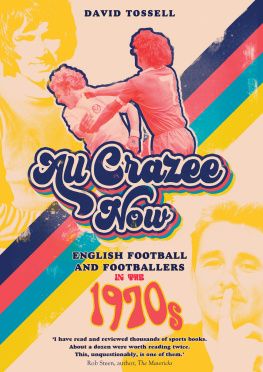
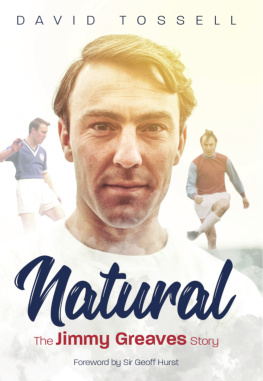


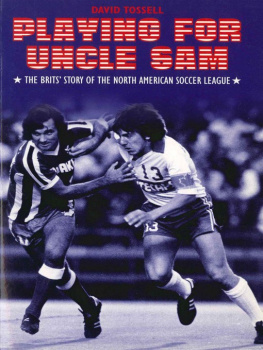
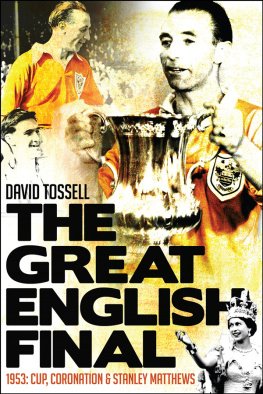
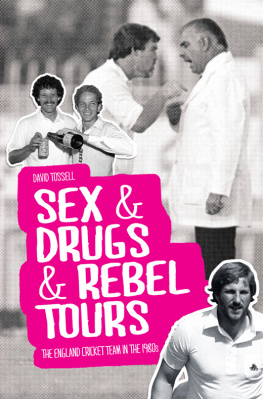
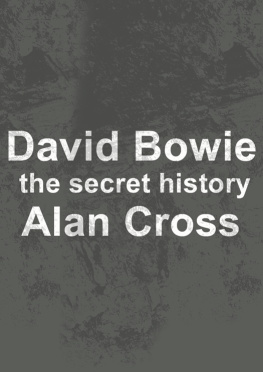
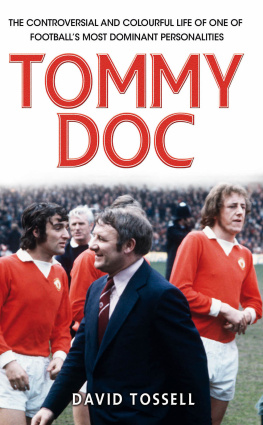
![David Lagercrantz [David Lagercrantz] - The Girl Who Lived Twice](/uploads/posts/book/140927/thumbs/david-lagercrantz-david-lagercrantz-the-girl.jpg)
